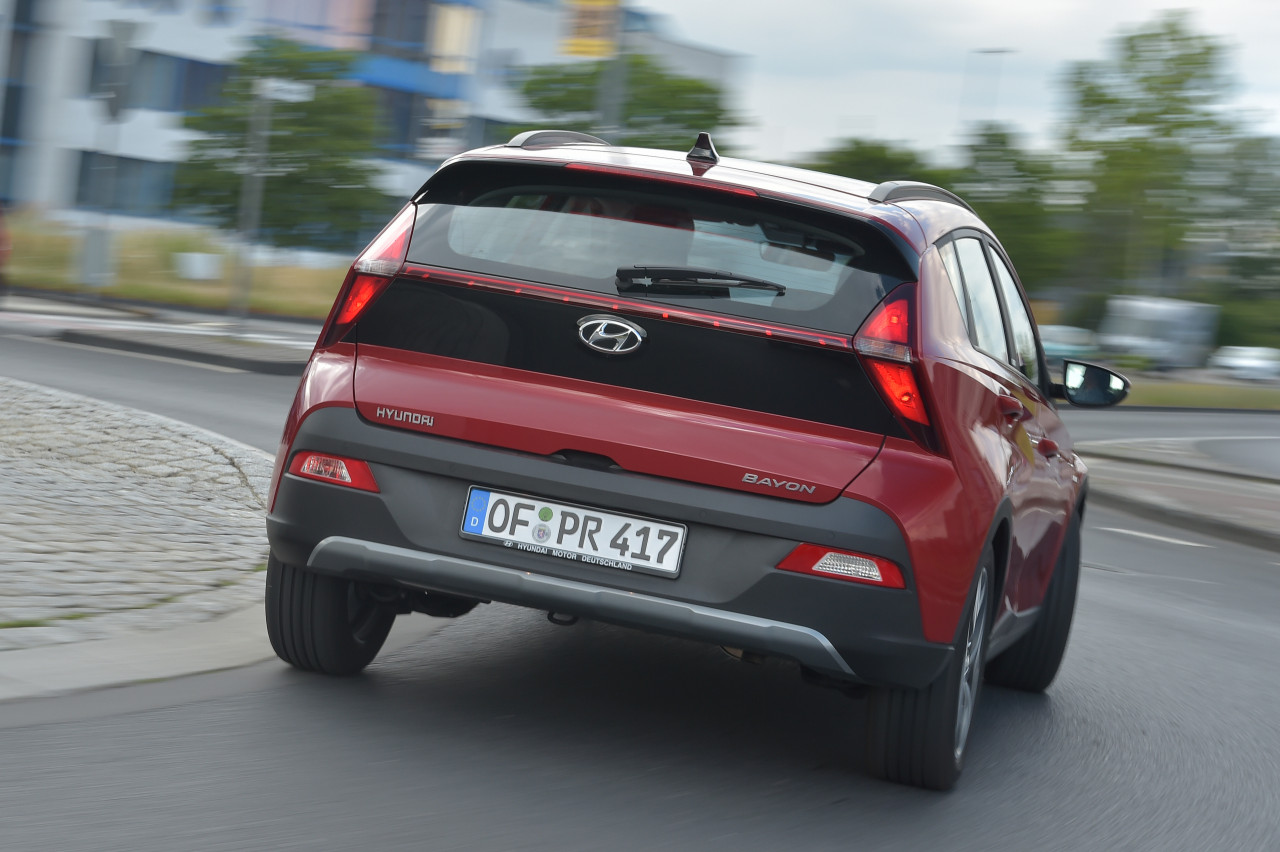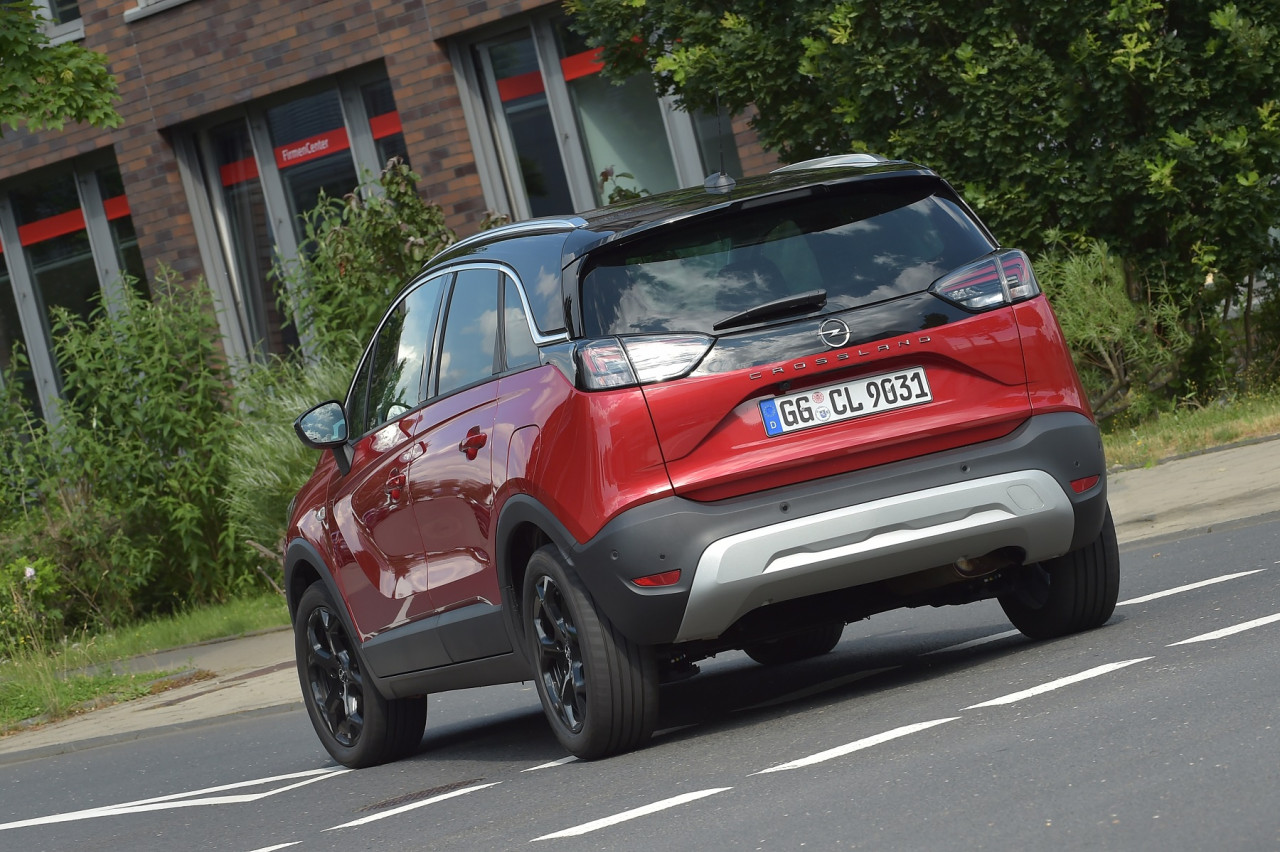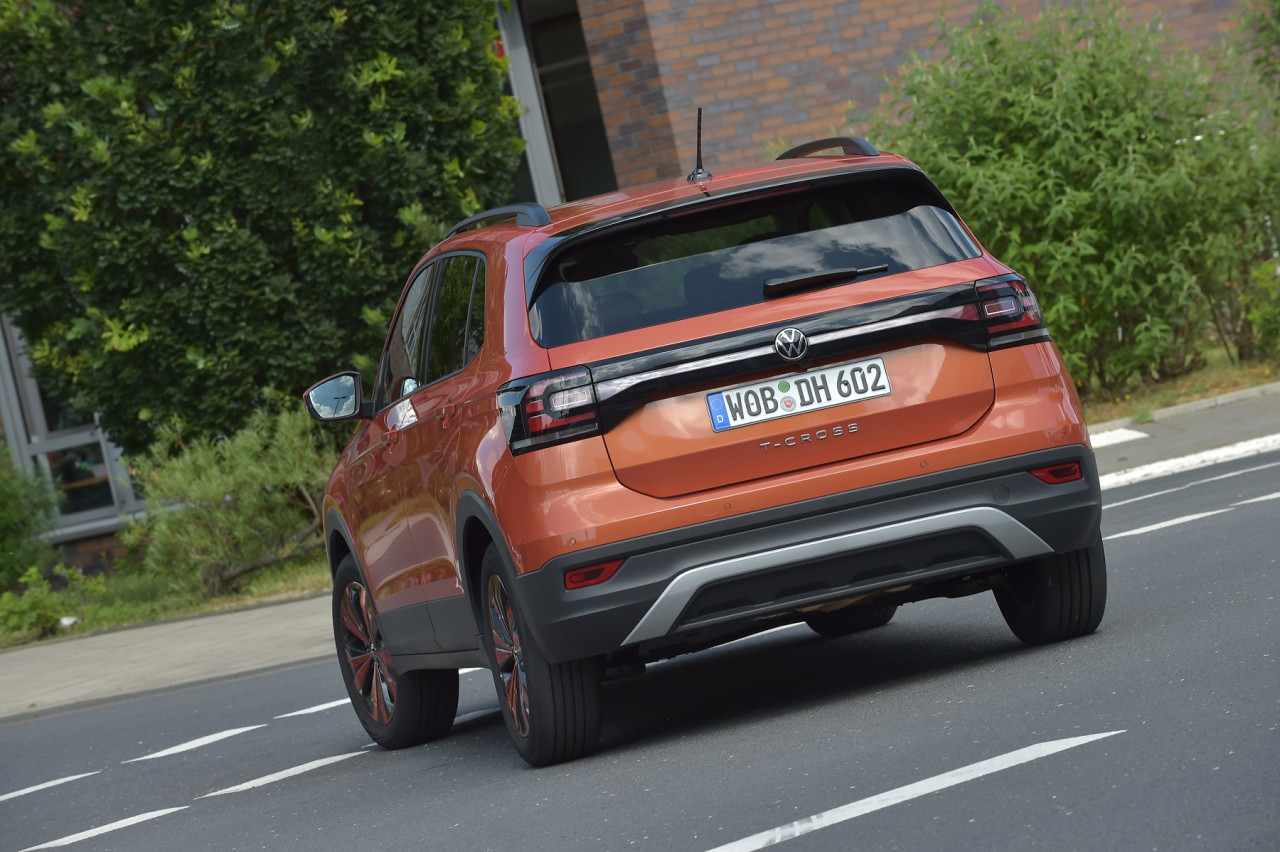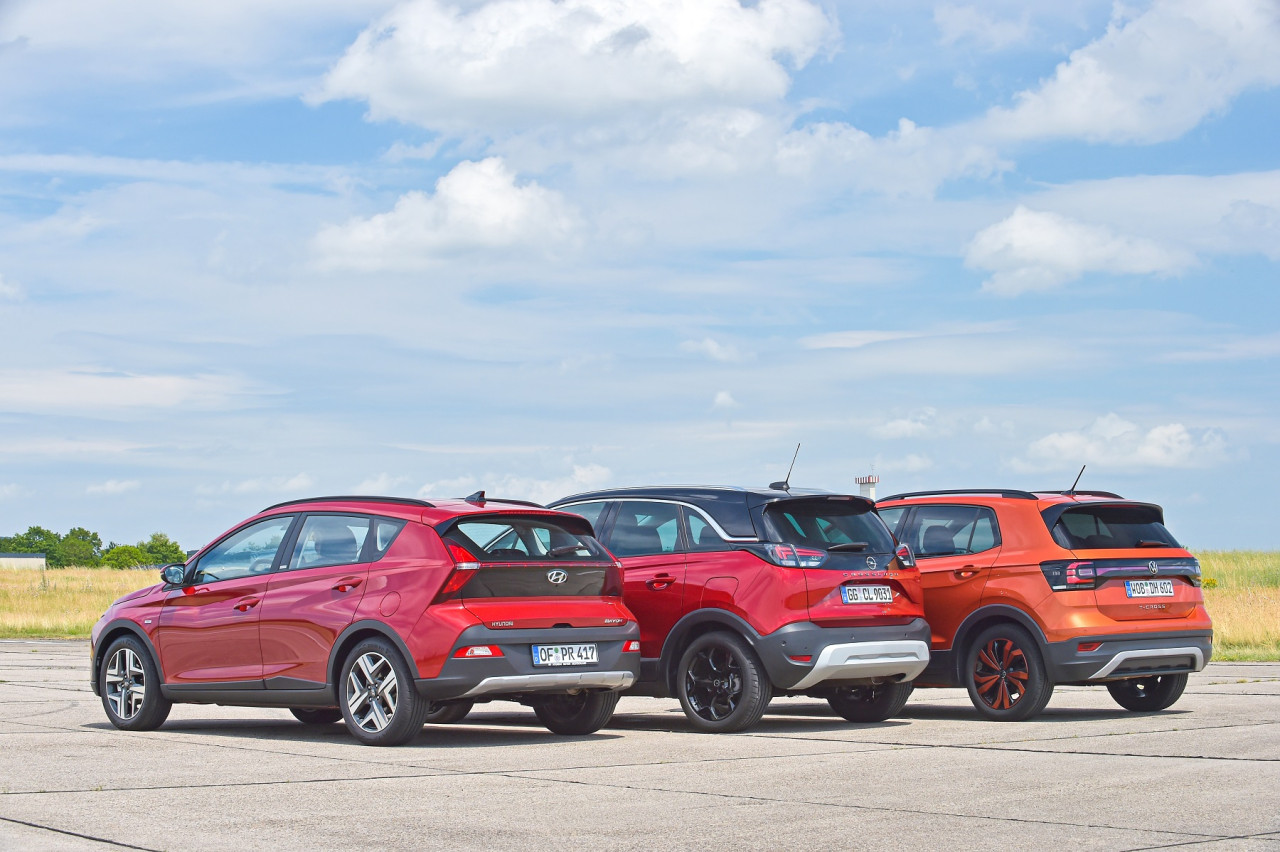In an extensive comparative test, we send the Hyundai Bayon, the Opel Crossland and the Volkswagen T-Cross onto the track. There we look for the driving qualities of the trio of compact SUVs. The test results will amaze you.

Compact SUVs such as the Hyundai Bayon, the Opel Crossland and the Volkswagen T-Cross are ideally suited as a family car. Of course, safety is extra important. Not only in the form of a comprehensive package of driver assistance systems and corrective measures, but also in confidence-inspiring driving characteristics. In an extensive comparative test – from Auto Review 10/2021, which you can order in our webshop – we send the cars to our test circuit. We would like to know where their limits are.

The Hyundai Bayon drives surprisingly sporty
In the Hyundai Bayon you quickly feel that its chassis is tuned for tight driving characteristics. The suspension and shock absorbers are of the stiffer kind. Not that every bump or bump is passed on hard, but on a bad road surface the car is in motion.
That’s good news for drivers who like to press the accelerator a little deeper when a bend is approaching. The body of the Hyundai Bayon hardly tilts and the steering gives a lot of feedback. But even if you switch off the ESP completely, the car continues to react very predictably. Very nice! Only you have to give up a little spring comfort for so much fun.



Receive the most current car news in your mailbox by subscribing to the Auto Review newsletter!

The Opel Crossland focuses on comfort
The chassis of the Opel Crossland sounds like an inebriated flamenco dancer stumbling across a hardwood parquet floor. On a bad road there are a lot of noise from the suspension. But that’s the only blemish on the travel comfort, because the suspension and shock absorbers smooth out unevenness.
When the limits of the chassis are explored, the Opel Crossland clearly shows that it is not served by so much enthusiasm. The steering is of the indirect kind: instinctively you have to turn far in to be able to round a corner. The Crossland does not encourage high cornering speeds, because it slides over its front wheels to the outside of the corner (understeer) even at a fairly low cornering speed. But above all, Opel should take another look at the brakes of the car. In the event of an emergency stop, the test Crossland needs more than an additional car length to come to a standstill in the event of an emergency stop.




Volkswagen T-Cross: safety first!
Volkswagen is a master of building excellent all-rounders. The T-Cross is yet another proof of this: everything it has to do, it does well. Without excesses. The compact SUV is blessed with a chassis that has a very nice balance, and can offer a pleasant suspension comfort under all circumstances.
Excesses on the test track are strange to the T-Cross. Here too, safety comes first. The steering gives a confidence-inspiring feedback, and when you threaten to go over the line and understeer is lurking, it is announced well in time by the chassis. However, the car particularly excels in the braking test: during an emergency stop, the T-Cross is the first to come to a complete stop.



Conclusion
If safety comes first for you, then you have come to the right place with all three brands. The Opel Crossland loses some points on the braking test, but otherwise it is safety. The Volkswagen T-Cross offers excellent comfort and plenty of safety, but if you also want to enjoy your commute or the weekly trip to grandma in Obdam, then you should opt for the Hyundai Bayon. It is blessed with a chassis that you would actually wish for under any car.
